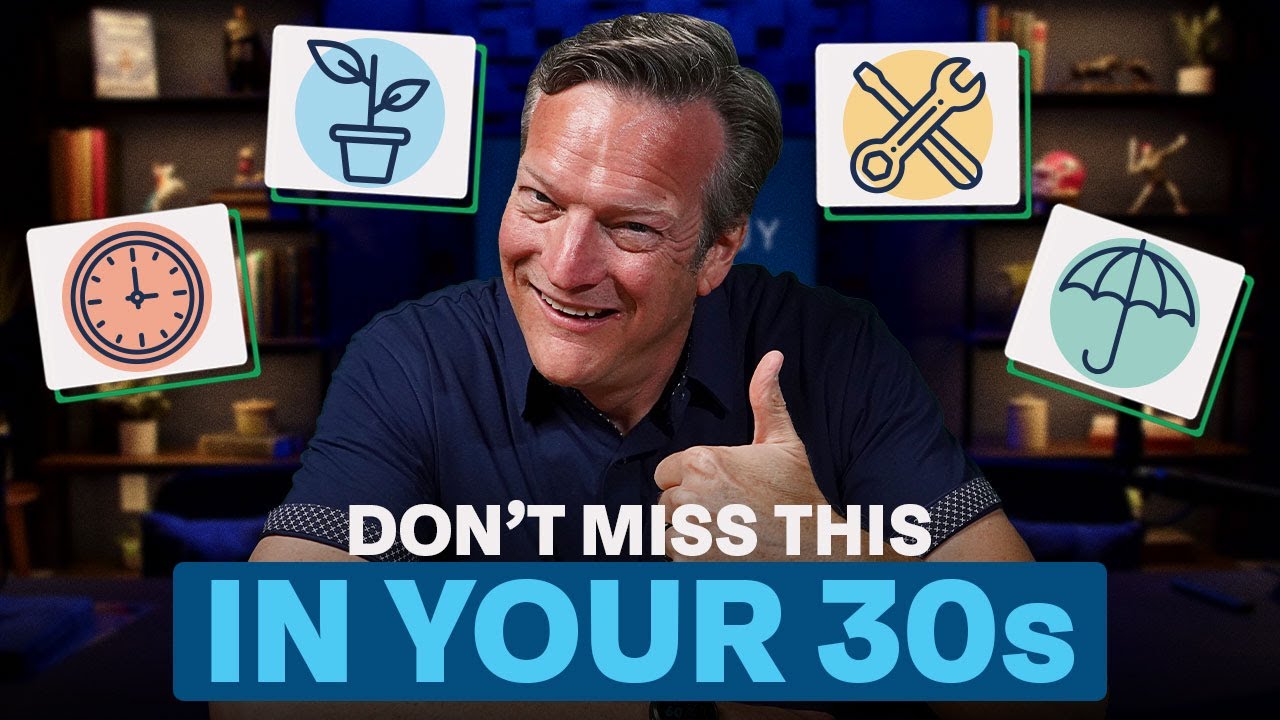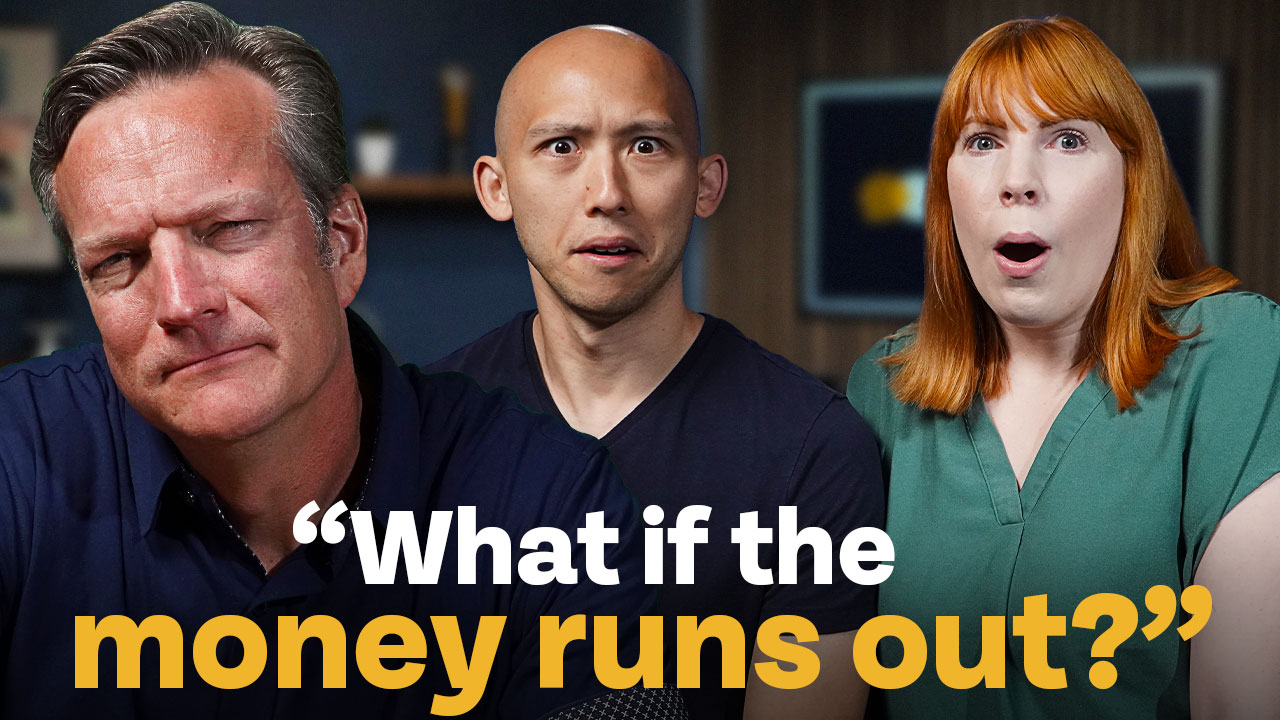All right, BR. Now, let’s talk about attitude. We talk about this all the time—our folks have mutant mindsets. It’s that mutant mindset that actually gets you to millionaire status. But when we think about millionaires, what do we think their attitude towards money is? Well, generally speaking, people think millionaires are greedy, stingy, stressed about money all the time, and they don’t know what enough is. They want to build wealth just so they can do, uh, what was it, Scrooge McDuck who was backpedaling through all the coins and stuff? That’s our perception. All of those things lean heavily into what I consider financial misers.
Financial mutants are not misers. We actually know the value of our time and the value of building memories. So we wanted to show you the reality of what our clients see when they look at their money and their time.
The reality is that 85% of our clients are actually optimists. They believe that things are generally better than they are worse, and the future is brighter rather than darker. They have a positive outlook. They also say that they’re not stressed about money. That doesn’t mean they’ve solved all of their money problems, but our clients recognize they have a plan in place. They are executing that plan and moving towards common goals. Because they know they have a plan that they continue to execute, they don’t have to feel the same level of stress or burden that we often see associated with money.
I wanted to lean into that optimism because I like to self-describe as an optimist. I really do believe that’s why I always say, “Take a little bit today for that great big beautiful tomorrow.” When you contrast that with the general public, 53% classify themselves as pessimists, and that makes me sad because that is the opposite of what we’re seeing from our clients. I would challenge you to think about your mindset or perspective because you control that. You know how you’re using money as a tool. By the way, only 25% of our clients classify themselves as wealthy. However, 75% say exactly what you said—they’re not stressed. These things are important to repeat because it lets you know that yes, money is not going to be the why of your life. It is only a tool, but it is definitely going to give you some facets to where you can enjoy life or lean into what you really do.
Finding that purpose is great because our clients recognize that money is just a tool. When asked, “Have you recognized that money is a tool?” we received exciting responses. The first one was that money allows us to prioritize family. Here’s a direct quote: “Aggressively saving and living within your means so that you can have a stay-at-home spouse or both work part-time to spend more time with kids.” One of our clients said that’s what money allows them to do.
How about IVF? A lot of our clients have used money for IVF treatments when they had difficulty growing their family. They were able to pay for higher treatments to create their own legacy. Another client said, “Because of the hard work I did in my 20s and 30s, now in my late 40s, I have the freedom to spend additional time with my wife, kids, aging parents, and other loved ones because I get to own my time.” That’s how money can be a tool.
Another thing they said about how money is a tool is that it provides security and peace of mind. Here’s a quote: “It’s nice not to stress about the little things, and at this point in our financial journey, we can see the results of saving so much so young. It’s a great feeling.”
I often talk about your older self giving you a big hug with tears of happiness. When I read a quote like that, that’s the visual I get in my head. They’re so happy about those sacrifices, discipline, and deferred gratification from their younger selves bearing fruit now.
This one says, “You know what money did for me? Money gave me peace of mind, which is priceless. Money provided something that money cannot buy.” Another client mentioned that money gave them freedom. “When I think about money and what it allows me to do, it gives me freedom. I’m no longer pinching pennies. I recognize that I traded in my tightwad card years ago because of those early sacrifices.”
How about making decisions based on want, not need? I’ve done trips on the cheap that still have a special place in my heart. But now, I look at how we travel and make memories, and it’s completely different because of the discipline I practiced years ago. It has borne enough fruit that I can do the nicer things now.
You talk about those blossoming memories. One of our millionaires said in their responses that money as a tool allowed them to have experiences. One client said it allowed them to have a career hiatus for three years to pursue passion projects. They were able to step away from the workforce for 36 months because of their decisions, focusing on passions before returning to work.
Another client mentioned paying for a big trip and covering friends’ tickets so they could come too. That’s awesome. That generosity builds those blossoming memories, even if friends or family don’t have the resources to do it.
The last point they made about money as a tool was that it allowed them to be more generous. They could support people in need, donate to important causes, or assist aging family members. They used money as a mechanism to support and provide assistance where needed. If they hadn’t made those decisions, they wouldn’t be able to do this.
These are all beautiful examples of how money is just a tool, a method, and a mechanism to allow us to focus on the things in life we truly value and care about.
I’m hoping people recognize that there’s a reason we’re always holding up the financial order of operations. If you go to moneyguy.com/resources, we want to help you know what to do with your next dollar. A key thing that came up in our survey is that people figured out at a pretty young age, or later in life, that their money could work as hard as they do with their back, brain, and hands.
When did you start taking money seriously? When did the light bulb go off for you that taking money seriously can have a huge impact on your life? 31% of our financial mutants said it was before 24. But 25% said it wasn’t until their late 20s. 32% said it was in their 30s, and 12% said it wasn’t until their 40s. The takeaway is that it’s never too late to start taking it seriously. Don’t wait another day—prioritize getting serious about your finances today.
Building your army of dollars and letting them work as hard as they can is exciting, but you still need to have an emergency reserve. We wanted to know how many of our millionaires prioritize having emergency reserves and for how long.
14% of our respondents had three months or less, 39% had four to six months, 14% had seven to nine months, 18% had ten to seventeen months, and 16% had over eighteen months of emergency reserves built out. These are millionaires at different stages of life, but they recognize that emergency reserves are the oxygen you need when you need it most.
86% of our respondents practice having three to six months of reserves or more. That’s pretty powerful. We also talk about getting that free money from your employer. It’s no surprise that our clients and millionaires are utilizing those tax-advantaged accounts. The majority of our millionaires reached seven-figure status in their 401(k)s first.
The financial order of operations naturally forces you to do this. You get your employer match, work through the other steps, and then contribute to your Roth IRA, HSA, and employer-sponsored accounts. These are all tax-incentivized savings vehicles, and if you take advantage of them, you’re building wealth in an effective and efficient manner. For more information, check out our free resources.













